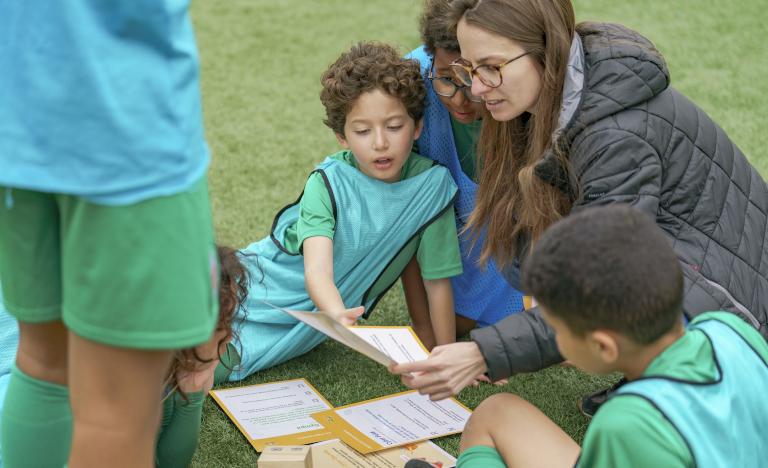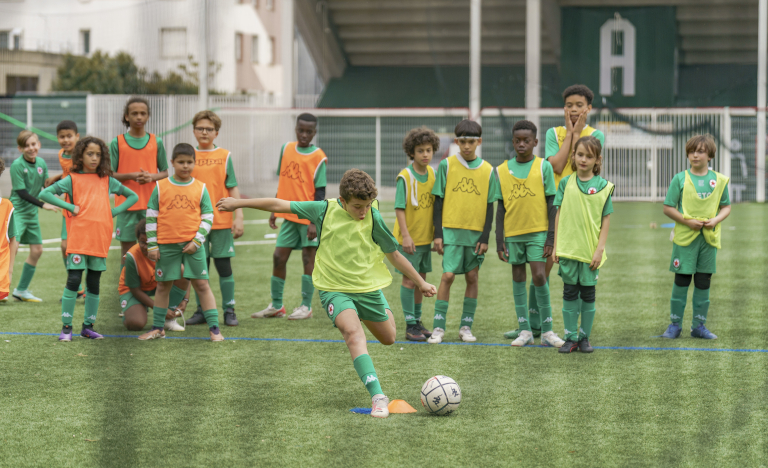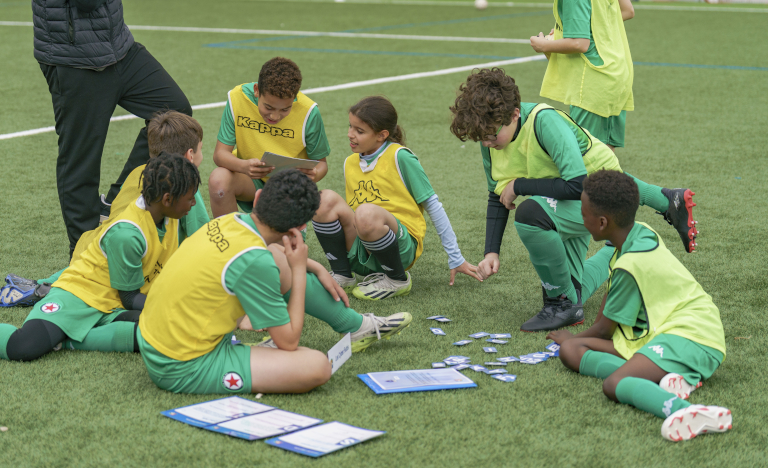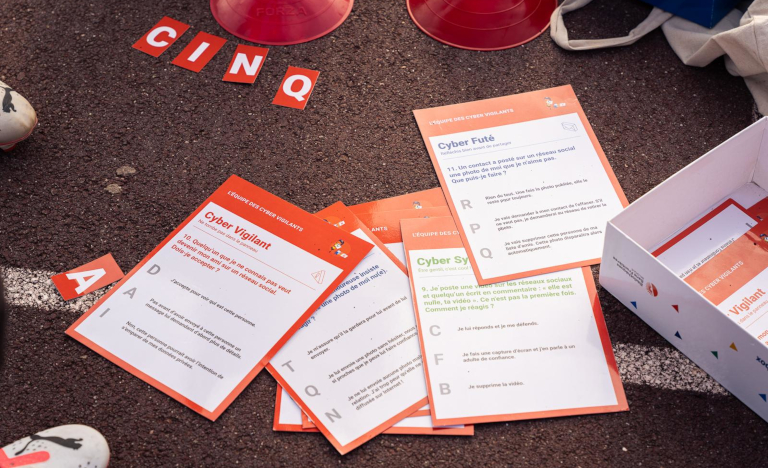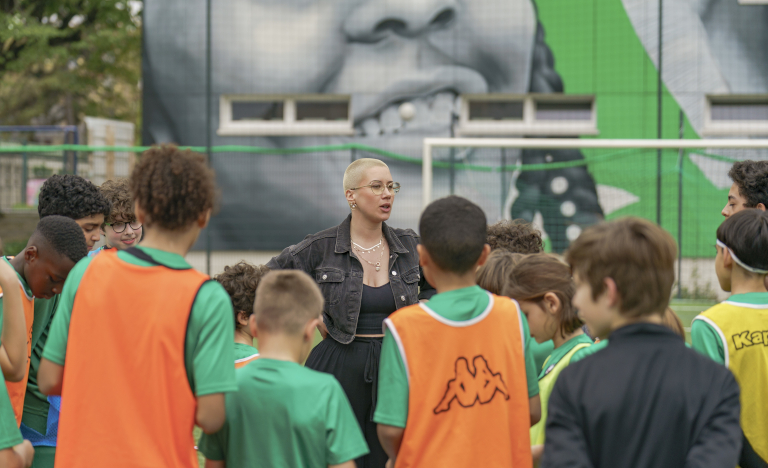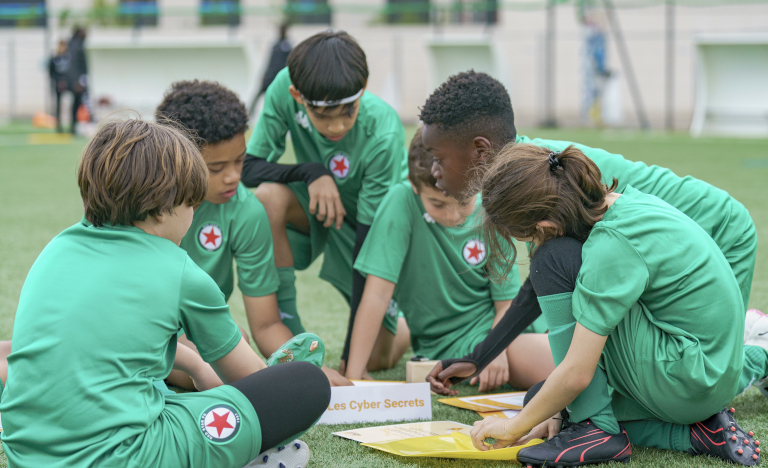Most participants in the workshops have already encountered online scams, social media intimidation, or rumors spreading in their schools. By combining sports challenges with media literacy exercises, LWB teams use real-life examples from the children’s experiences or current events.
“A few months ago, we held a session on cyberbullying, the same week that Vinícius Júnior, a Real Madrid player, broke down in tears during a press conference while talking about racism in sports. The kids had all seen the video on social media, and it immediately sparked a discussion among them.” Margaux
“During training, a young defender, Thibault, was skillfully dribbled past by an attacker. The moment was filmed and shared online, quickly spreading through his school. On one side, it was a great play; on the other, Thibault felt humiliated—especially since he was already struggling to make friends at the club. The incident led to bullying at school, making him want to quit football. Without BSF’s intervention, we might never have identified and resolved the problem.” Reynald
Since February 2024, 450 young players from Red Star FC and CSM L’Île-Saint-Denis have taken part in the “Les @thlètes de l’info” program. 25 coaches have been trained by LWB, and around 50 parents have also been involved to better support their children.
In 2025, LWB aims to expand the program to other sports clubs and distribute the educational kit on a wider scale so that it reaches as many people as possible. Coaches, educators, club managers, parents—let’s avoid a red card! Together, we can create a positive and constructive environment for young athletes, on and off the field.
(*Name changed for privacy reasons.)
© David Chiev

